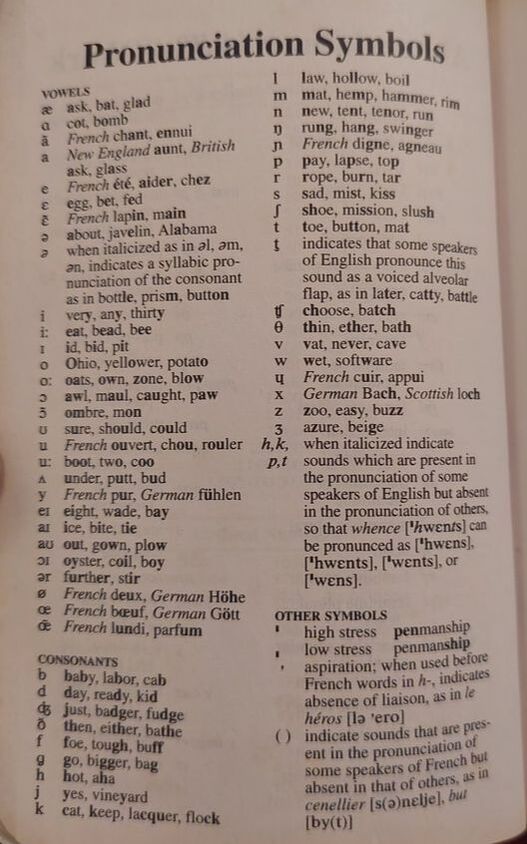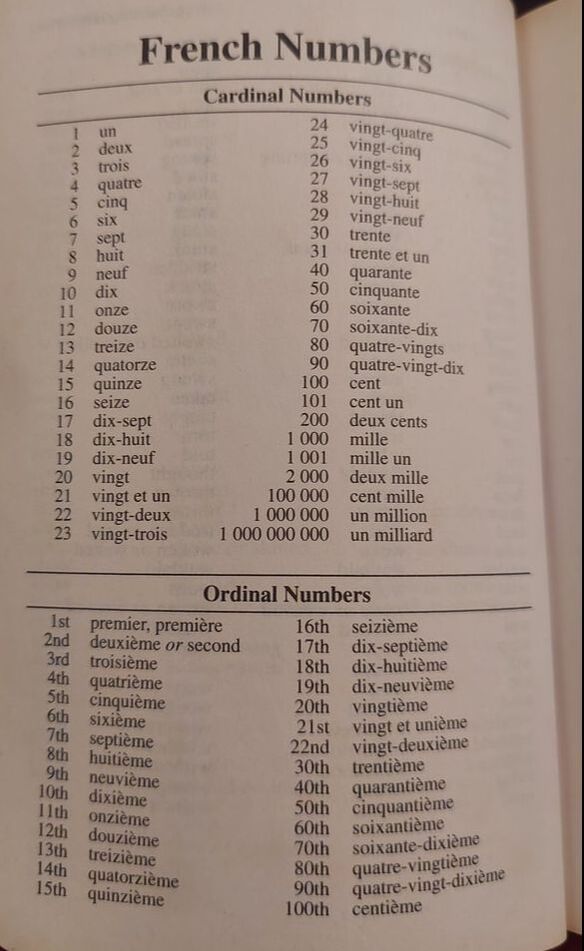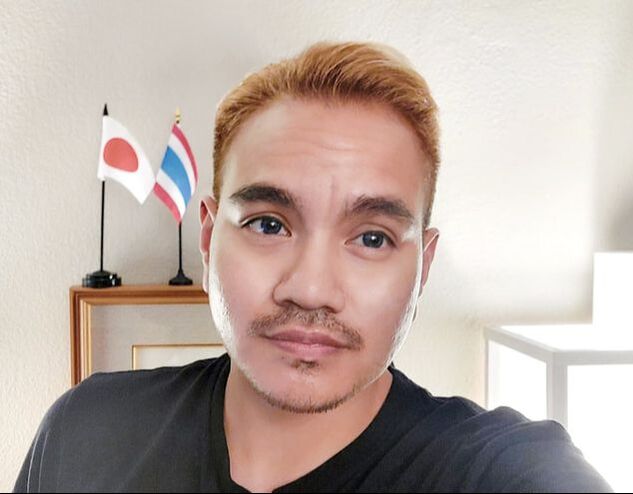|
What is the other thing that others don't know about me? Other than being transgender right? Well, it's that I can read, write, understand, and speak French! I'm currently learning Swedish and Italian from my boyfriend who is ethnically Swedish but was raised in London. I used to teach Khmer-French to people who were interested in learning but the only thing is that my accents are multiple due to the ability to speak multiple languages like Cambodian, Japanese, French, and English so there is a Khmer-French accent which is typically not the standard for French in France. It can be said the same for those who are Canadian-French, Indian-French, etc. or for those who are from French-speaking countries. Cambodia, my father's homeland, being one of them. The following are uploaded to my Youtube but they are from older recordings from when I had taught Khmer-French to others. The lessons were generated for basic beginners. Naturally, I am very shy when I speak French because I don't often openly speak French publicly and only speak French among close family and friends who speak it fluently. Here are the videos and hope I can teach some basic French: Introduction Please note, this introduction in regards to what company I work for is old as I no longer work there but the sentence structure can be used as an example for carrying intermediate conversations. https://youtube.com/shorts/8pLlDUrV80I?feature=share There were a few moments in the annotation videos below, parts 1-3, when I was really nervous and spoke too fast and even messed up a few times which is a non-occurrence in person. It was because I was really shy doing those recordings like having stage fright. I've revisited some older videos of my short French language lessons and currently working on updating to replace these old ones for new ones that are more coherent were I am less shy or nervous. Growing up, the first language I spoke was in fact Khmer (not English), followed by French which was mixed with Khmer so my father spoke Khmer-French, although, none of us realized it back then. Technically, Khmer-French was my first spoken language with Japanese being my second and eventually when I hit grade school, I was placed in an ESL class, and English became my third. I don't always speak English, it is not my dominant language, although I am fluent and may speak English very well. At home, I speak French to my partner, Khmer to my parents, and Japanese to my friends or relatives that I still keep in touch with. My circle of friends range from local to long distance and most are international. Most of my friends are from all over the world, I speak my native languages to friends and family according to the languages they do speak. I am fluent in all my native languages but I fear that I may be loosing them as speaking Japanese or Khmer is not an everyday occurrence whereas French and English has been for most parts of my life. In one of these annotation videos, I mentioned that I learned French when I was 21, this is somewhat true. I didn't begin to speak French more until I turned 21 and started working for French-based companies where I was able to put my French to everyday use. What I do speak at times is French slang, otherwise known as l'argot de rues (street slang), mostly informal, and sometimes politer forms (formal) when I do meet new people or people that I don't know personally that are from French-speaking countries or are a native of France, it's out of respect, and I don't always speak to them in French just because I can speak French. The French language is an SVO typology like English and Khmer. However, Japanese is an SOV language. All three languages are somewhat difficult to master especially all at once but Khmer and French is the more difficult to learn due to the heavier accents. I find that the Khmer pronunciation is somewhat similar to French pronunciation so it's an easy transition when switching from speaking Khmer to French. Being mixed, I sort of created my own cross language and it just became Khmer-French among my family. Merriam-Websters Pocket French-English Dictionary (2004) The importance of speaking French is mastering the French alphabets, accents, consonants, and vowels, like à, ç, é, ê, è, œ, etc. Khmers from the capital of Cambodia also learn and utilize the French alphabets when speaking foreign words, most foreign Khmer words are actually French borrowed or adapted into the Khmer language. For example: apple = baom (in Khmer) from French word 'pom' for apple sandwich = sang vich (in Khmer) from French word 'sandwich' for sandwich doctor = docteur (in Khmer) from French word 'docteur' for doctor helicopter = helicopteur (in Khmer) from French word 'helicopteur' for helicopter butter = bu (in Khmer) from French word 'beure' for butter calendar = calong-yeh (in Khmer) from French word 'calendrier' for calendar My father has a Khmer dictionary and there are French words in the Khmer dictionary just as there are Canadian words in the French dictionary. Interesting huh? French alphabets are pronounced as follows: a = ah b = beh/bé c = seh/cé d = deh/dé e = uh f = eff/effe g = zheh/gé h = ahsh/ache i = ee j = zhee/ji k = kah/ka l = ell/elle m = em/emme n = en/enne o = oh/o p = peh/pé q = koo/qu r = air/erre s = ess/esse t = teh/té u = ooh/u v = veh/vé w = doo-blah-veh/double vé x = eeks/icse y = ee-grek/i-grec z = zed/zede French accents are pronounced as follows using these few as an example: é as in été ê as in bête è as in père It's an easy mistake when speaking French and not taking alphabets, accents, and proper pronunciation of vowels into account because you can say a phrase which can mean something entirely different in French for example, you can mean to say, "Un vin blanc." (A white wine.) but end up sounding like, 'Le vent blond." (The blond wind.) because you mumbled-jumbled the accents at the tounge more than putting the proper emphasis on the pronunciations of the accents and vowels. Speaking Khmer and French requires use of the tounge, mouth, and lips. Stretch it! My tip is start with citing the French alphabets, consonants, vowels, and accents like the 'ç' (you know, the crlkkk sound) like in 'français' and 'france' and don't forget the soft silent ones like in, "Dormez-vous?" The 'z' is silent. Here are some French memes that will give you ideas on the language. The parts were they Googled words that sound alike with different meanings when put together in a sentence just cracks me up, but in all due respect, it is otherwise, a beautiful language. Another thing to point out is that when it comes to speaking French and the translation, keep it mind that whatever you say or how you form your grammar really matters. To my French ears, I would watch a French movie and the English subtitles are completely different than what was actually said? There is a reason for that. If the English translates exactly to that of a native French ear, the translation would be altogether foreign. For example, in French, to ask about a person's age is, "Tu as quel âge?", and to tell others your age doesn't translate to, "I am 38 years old." Instead, to the native French ears, like mine, it actually translates in my head to, "I have 38 years." If you break down the French phrase for age, in French, I would say, "J'ai trente-huit ans." 'J'ai' is I have (root verb is 'avoir' which means to have). 'Trente-huit' is the number of my age, that's 38. 'Ans' is years (masculine). Someone replied back to me one day when I had asked about their age, they had used this phrase, "Je suis trente-deux âge." Although this phrase may be seen in English to be formulated as, "I am 32 years old." For example, 'Je suis' is I am. 'Trente-deux' is 32. 'Âge' is age. This is actually incorrect! Je suis is a context used for "I am...", I'll use the irregular verb 'avoir' as an example to help you understand the meaning. Example subject/pronoun for (I have) form: Avoir = to have J'ai = I have These are the subject/pronouns for I, myself, etc. J/Je = I Je suis = I am Je me = Myself The number is correct but âge can't be used because it also has multiple meanings which can also mean ancient, time, or period. Another thing, do not use Google translator as a reliable source to formulate your grammar or phrases. It can be outdated or incorrect entirely. My tip to you is to learn it by getting a pocket dictionary, enhancing your vocabulary, verbs, learn the root, present, past tense, future tense, etc. Most of all, learn the mind of a French native and how they hear or form their phrases and practice through having a verbal conversation versus learning with silent textbooks where you never really speak French or put it to use. You would only be able to write and read it but would never really truly learn how to speak it. However, if you do speak or practice speaking French, please just keep it as simple as you can and don't speak textbook French aka the old school teachings or phrases that were spoken from the 90's. It doesn't sound authentic. For example, present day, the French no longer use phrases like, "comme-ci comme-ça", as this is outdated, nor do they say, "ooh-la-la", it's "aah-la-la". I noticed that when I meet predominantly English speakers (non-native French speakers) who try to speak French, they tend to formulate a phrase way longer than it should so they go on and on and on as a way to show off their skills that they can speak French but in truth, a real French person would just keep it simple and say, "Je compris." For example, I was in Paris on my London trip back in 2019 and was next to an American tourist who was making an order at a pastry shop and he said something elaborately long as, "J'aimerais avoir une baguette." It translates to the, "I would like to have a baguette." Then when it was my turn to place my order, all I ever need to say was, "Un croissant š'il vous plaît." (A croissant please.) I've seen a waitress get so confused when American tourist order in French and not speak clearly or pronounce the accents correctly and completely butcher the language because they felt entitled but then get politically correct by a fellow Frenchman. When others introduce themselves in French to me and tell me a full story in French, for a lack of social etiquette, normally when it's my turn to speak after listening to them go on for 5-15 minutes about their story, all I ever say about me in short is, "Mon père est français et cambodgien. Mon mère est japonais." That's it. I'm mixed with French which is why I can speak and understand it, and that's all you need to know from that point. Anyone that speaks in French in very long winded way is just impertinent and simply showing off their skills as there weren't any room for a proper back and forth conversation that was deemed to be polite when it comes to French etiquette or manner. Another thing to point out, I speak in masculine forms. It annoys me when other non-native French speakers attempt to correct me and say things like 'françois' instead of the proper 'français' (masculine) and 'française' (feminine) for the word French. Please stop saying 'françois', it doesn't mean French, it means Francis which is a name like Chef François Payard. Also, not every French word ends in ~çois (swah or ~waahs) because at that point, they're just trying to sound savvy which can be taken as a mockery to the French language and culture. Lastly, respect it. Learn about the history and the culture. At my father's French villa in the capital of 'Cambodge', his homeland, our family carry some semblance of the French traditions as French is rooted in his blood before the days of the 'Khmer Rouge', like having a proper dinner. We get dressed up and socially gather In the living room, there we have l'apertifs, (non-alcoholic drinks), then we get seated in the dining hall and have l'entrée (starters), followed by l'plaît principal (main course), then le fromage (cheese), and finally le dessert (dessert). Then after we eat dinner in the dining hall, we go back to the salon (living room) and have le digestif (an after dinner treat) which is basically some tums for heart burn and indigestion. Or for the men, it's bourbon whiskey and tobacco. When we dine at the table, we follow the continental dining etiquette and the silverwares are always set in the B-M-W (bread-meal-water) pattern by the butler. If you're wondering, am I rich? No, but my father's side of the family are and my two surviving older step-brothers, who are both more French than Khmer and are fully French native speakers, oversees his French villa on his behalf while my father resides in America.
0 Comments
|
AuthorKaneda Yoshida (male pronouns: he/him/his) is a transgender (FTM) who blogs about his life's journey and experience as a transgender (FTM). Archives
December 2023
Categories
All
|
- Home
- About
-
Services
-
KYOSHIDA Photography & Graphics Design
>
- Professional Photography Service Package >
- Special Events Photography Service Package >
- Website Design Service Package >
-
Graphics Design Service Package
>
- Custom Logo Design Gallery
- Custom Frame Design Gallery
- Custom Word & Font Design Gallery
- Custom Banner Design Gallery
- Custom Postcards Design Gallery
- Custom Flyer Design Gallery
- Custom Brochures Design Gallery
- KYOSHIDA Studios, Inc. Beauty SPFX & Makeup Artistry >
- Custom Business Cards Design Gallery
- Custom Product Labeling Design Gallery
-
KYOSHIDA Photography & Graphics Design
>
- Wine With Me
-
Cooking Recipes



 RSS Feed
RSS Feed



